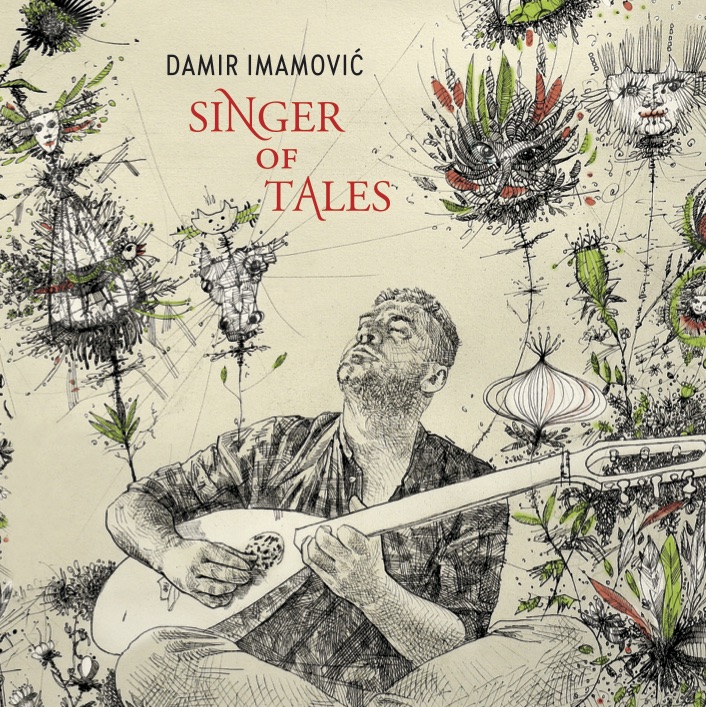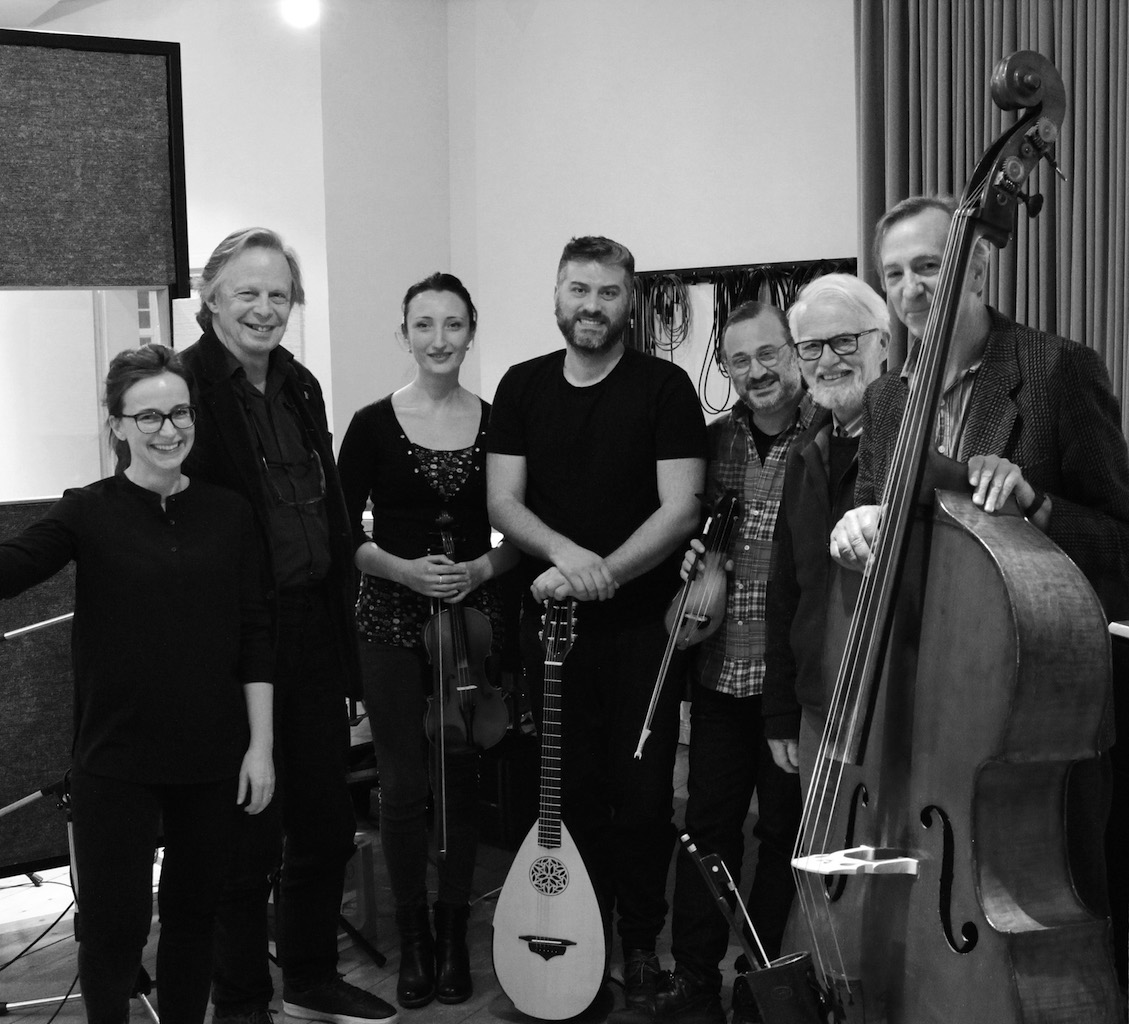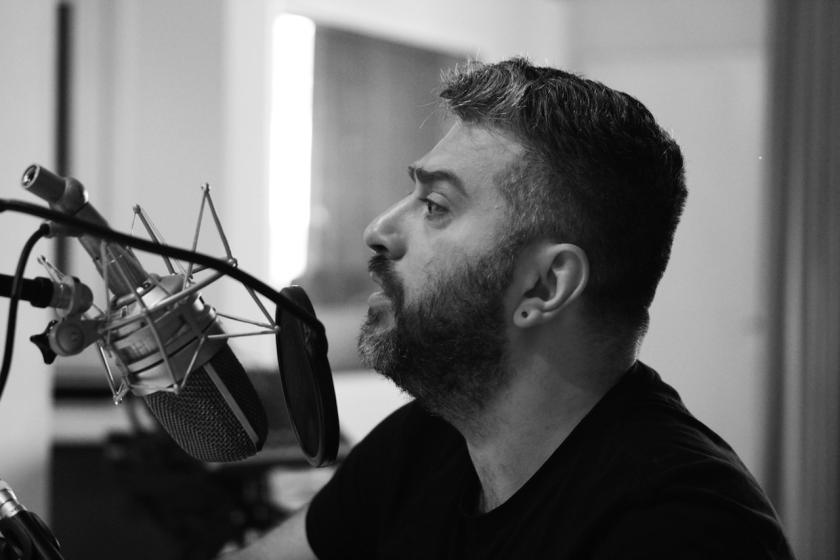When it comes to making records, I love deadlines. Embarking on an open-ended project, particularly with the infinite number of overdubs made possible by ProTools, is my idea of hell. Back in the Nineties, I once spent an afternoon combining vocal takes line-by-line into a master track for one song. That’s when I started to think writing books might be a better way to make a living.
But, having just four days in a studio with a quartet of world-class musicians, an engineer who loves moving microphones around in a single space to achieve the perfect sonic blend (Jerry Boys, with whom I’ve been working with for 50 years), and a co-producer (my wife, Andrea Goertler) whose attention to detail and sharp ears put me happily to shame... that’s definitely the way to get me interested in producing records again.
And when, on top of that, the artist being recorded comes from a rich musical tradition and not only sings the hell out of it but writes books about it, too, that, as Jimi Hendrix’s girlfriend Fayne Pridgin so memorably observed in my documentary about him, “puts the icing on the fuckin’ cake”.
The artist in question is the great Bosnian sevdah singer Damir Imamović, whose album Singer of Tales we just released on Wrasse Records. He is my idea of a paragon of how to balance tradition with innovation. This urban folk music of Bosnia and Herzegovina could find no better champion than Damir, who’s from "sevdah" royalty, with a musician father and a legendary grandfather who was a Yugoslav radio star in the Fifties and Sixties. Damir tried to resist his destiny, but, as the millennium turned, he embraced it.
 The word sevdah is derived from the same Arabic root – sawdah – that became saudade in Portuguese. I guess it makes sense that the original meaning – "black bile" – could result in "sad nostalgia" at one end of Europe and "the sorrow of love" at the other. A century ago, this folk tradition (like so many around the world) made its way to the bars and brothels of the cities and was accused of being disreputable. But it also got formalised and recorded and, when Tito endorsed it after the war, sevdah entered its "Golden Age". When the country splintered it fell into disfavour, but a new generation, of which Damir is a leader, is bringing it back to life.
The word sevdah is derived from the same Arabic root – sawdah – that became saudade in Portuguese. I guess it makes sense that the original meaning – "black bile" – could result in "sad nostalgia" at one end of Europe and "the sorrow of love" at the other. A century ago, this folk tradition (like so many around the world) made its way to the bars and brothels of the cities and was accused of being disreputable. But it also got formalised and recorded and, when Tito endorsed it after the war, sevdah entered its "Golden Age". When the country splintered it fell into disfavour, but a new generation, of which Damir is a leader, is bringing it back to life.
Andrea and I met him on a flying visit to Sarajevo in 2014; when he told us there were no gigs that weekend, we must have looked so crestfallen that he organised and performed a house concert that threw us into sevdah at the deep, rich end. Our bond was sealed when, a year and a half later, he sang the most beautiful love song at our wedding ("Kafu mi draga ispeci", track three on the album).
We returned to Sarajevo in the autumn of 2018 for Damir’s 40th birthday concert, intrigued by the line-up he had assembled. The idea began when he met the legendary bass player, Greg Cohen, at a festival in Croatia. I’ve known Greg for years; he’s played with Tom Waits and Ornette Coleman and almost everyone in between. Another piece fell into place when Damir studied maqam, the Arabic structure that lies at the heart of much Middle Eastern music, at Ross Daly’s remarkable Labyrinth Music School on the island of Crete. His teacher was Derya Türkan, a master on the kemenche, a bowed instrument that plays a central role in traditional music from Turkey through Persia and east to Rajasthan. Derya’s open-spirited playing means he is in high demand by ensembles such as Jordi Savall’s and Kudsi Erguner’s; they vowed to work together and explore the five centuries of interaction between Ottoman and Balkan music. Completing the ensemble was violinist Ivana Ðurić, a classically trained player from Sarajevo whom Damir first encountered in a recording studio, where he was struck by her beautiful tone and the profound musicality of her fresh approach to sevdah.
That night we were transfixed by a magical blend of Eastern and Western instruments twining around each other and Damir’s singing like vines. After the show, we rushed to tell Damir that this quartet should be the line-up on his new album and he agreed. (Andrea and I had, in the meantime, cut our co-producing teeth on At Least Wave Your Handkerchief At Me by Albanian all-star group Saz’iso.)
Greg’s wonderful-sounding instrument is bas(s)ed in Berlin and costs a lot to move, so we decided to convene at the Tritonus Studio in Kreuzberg. Damir and Andrea had discussed the material at great length and he already knew the album’s title: Singer Of Tales, an homage to the book by Albert Lord about Milman Parry’s travels through the Balkans in the 1930s collecting ancient songs. His research suggested that the region’s bardic tradition stretched back into pre-history, providing a possible clue to how The Odyssey had been kept alive for oral generations before finding its way onto Homer’s papyrus.
We were prepared but not over-prepared; arrangements were often improvised on the spot, tempi altered, experiments attempted but with Damir’s powerful yet nuanced singing always at the heart of everything. The classically trained Ivana was a revelation, with her elegant embrace of folk and gypsy styles. Derya’s instrument is surprisingly small, but in his hands, its feline sound weaves in and out of the other instruments, providing the magic ingredient to create a blend like a string-quartet from a parallel universe. Greg loves exploring new musical forms and has often embarked on complex and abstract sonic adventures; his playing here might sound straightforward yet it’s full of feeling and, to my ears, transforms the recording. He and Derya bring their western and eastern sensibilities to sevdah but always remain in the service of the music; this is not "fusion", it’s exploring a timeless form in joyful harmony with Damir and Ivana.

The sessions reminded me a bit of the "good old days" when there was money to hire the best players in the world, who would quickly learn a song by, say, Nick Drake, Richard Thompson or Kate & Anna McGarrigle, then create a definitive recording in a couple of hours. Working under time pressure focuses the mind and brings everyone 'into the moment'. Sure, it can be nice to have the option of overdubbing, fixing mistakes etc, but it robs the session of creative urgency; I believe one reason the great recordings of the 1920s, Thirties, Forties, Fifties and Sixties still speak to so many is down to the intensity of the live recordings that created them.
It’s a great feeling when you begin mixing and realise you’ve got something down on tape that makes all the preparation and effort worthwhile; Damir, Jerry, Andrea and I found ourselves looking at each other from time to time and grinning. Now it’s everyone else’s turn to listen and, possibly, smile.
- Watch the official video for the first single „O Bosanske gore snježne“: https://www.youtube.com/watch?v=xfNw-QKisKw
- Joe Boyd's website: http://www.joeboyd.co.uk/
- More new music on theartsdesk














Add comment